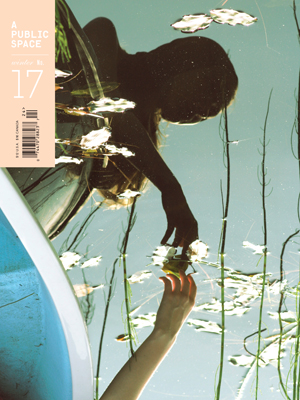Feature
The Mausoleum of Lovers
Hervé Guibert
Translated from the French by Nathanaël
Log in to read the rest.
If you are a subscriber but do not currently have online access, please contact us to link your subscription at subscribe@apublicspace.org
Not a subscriber?
Not yet a subscriber? Join us now, and become a part of the conversation.
